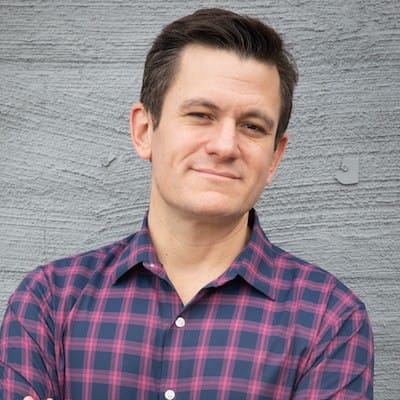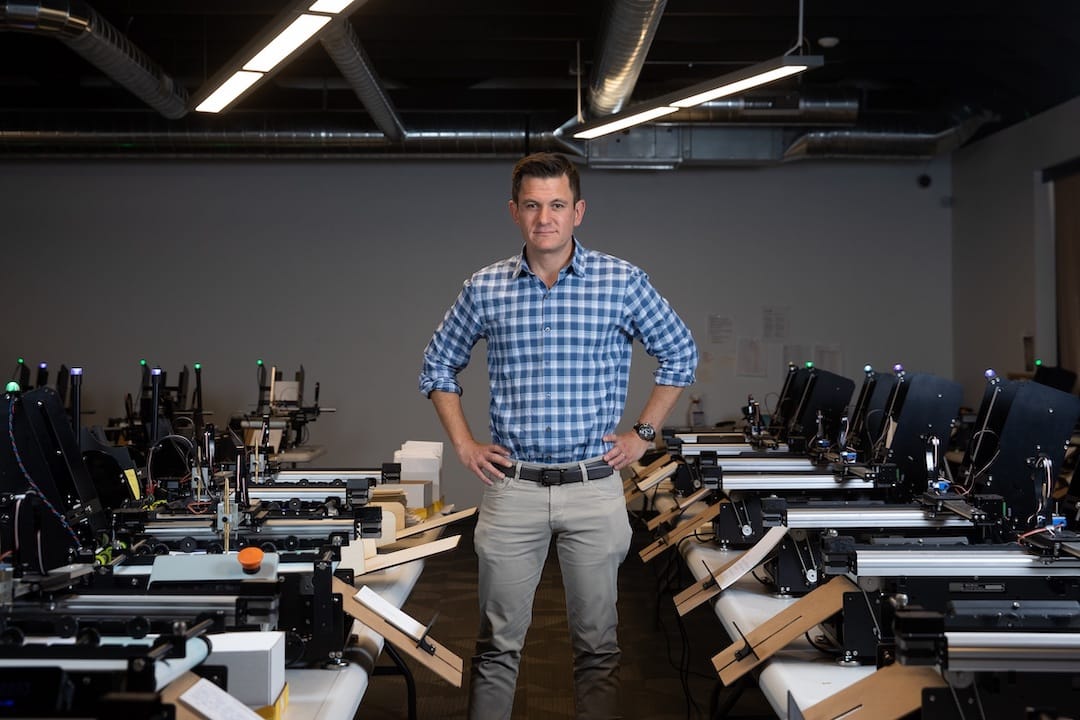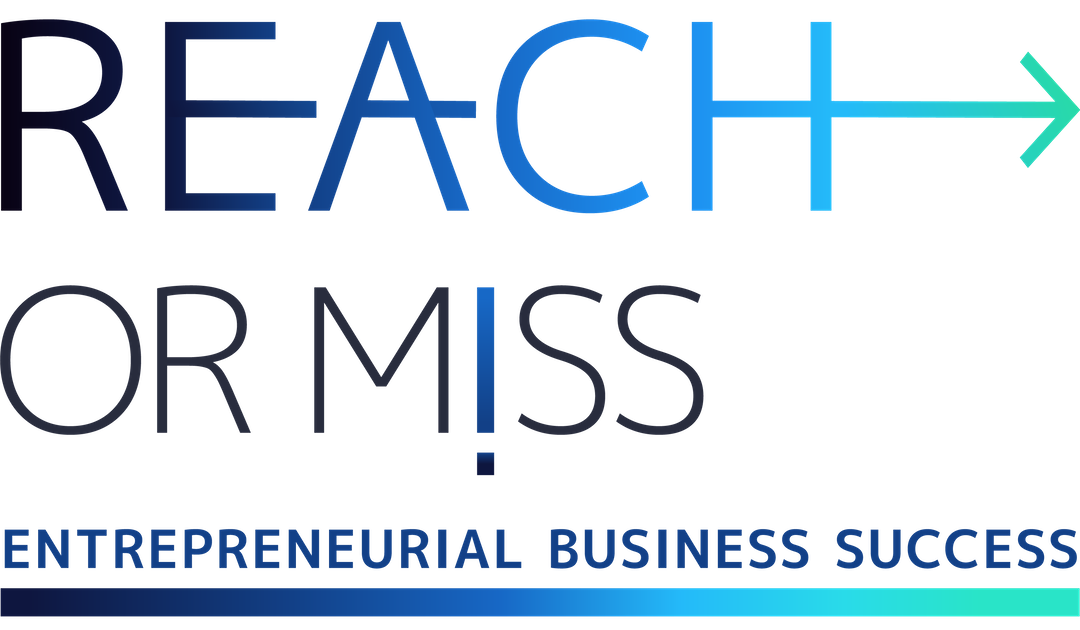Ep. 215 – David Wachs wanted to send handwritten notes to his employees and customers when he sold his first company – so he invented Handwrytten.com

David Wachs’s latest venture, Handwrytten, provides scalable, robotic solutions that write your notes in pen. Used by businesses in all industries, Handwrytten changes the way brands and people connect.
Prior to Handwrytten, David founded Cellit, a leading mobile marketing platform. With clients including Abercrombie and Fitch, Walmart and more, Cellit was sold in January of 2012.
David is a speaker on marketing technology, has been featured in the Washington Post and Wall Street Journal, and is a contributor to Inc. Magazine.
Most passionate about
- My new company, Handwrytten. It’s not so new at this point; we’ve been around for seven years. Our goal is to reignite the lost art of Handwrytten communications.
- Specifically, we focus on communication from business to business or business to consumer in this day and age of electronic communication—whether that’s email or text or Slack, Twitter, Facebook, Instagram, all these other forms of electronic communication or old-fashioned junk mail, preprinted stuff that gets thrown directly in the trash bin.
- About seven years ago, we started this company with the idea of making and sending Handwrytten.
- We have a website, an iPhone app, and Android app plugins for major systems called Zapier and API, stuff like that, that allow people to get their notes to us very quickly in electronic form.
- On the other side of the technology, we have robots that we build in our facility in Arizona. They hold real pens and write these notes out at scale. The robots can write out about 750 notes a day each.
David’s career and story
- I grew up very middle class in Albuquerque, New Mexico. Always, even from the youngest days, I wanted to be an entrepreneur.
- When I went off to university, I specifically took a double major in business and engineering. I chose computer science engineering.
- I was in this program at the University of Pennsylvania called the Management Technology Program. I got a degree in engineering and a degree in business from Wharton. Then I went on and worked in consulting.
- In 2000, which was at the height of the dot-com bubble, I went to work for a consulting firm that was helping large companies start dot-coms inside of them. It was just standard management consulting, but it was a good experience nonetheless, and they worked me to the bone.
- I then wanted to get into venture capital. I worked in equity analysis for a large investment bank, Credit Suisse, first in Boston, and then I was moved over to a venture capital firm in San Diego, where I was abruptly fired without cause.
- When I moved out to San Diego to work at this venture capital firm, I had no savings left. I was relatively debt-free, but I had no savings. So, when I got fired, I moved home. My family had relocated. My parents had moved to Arizona, so I moved home to Arizona with my head between my legs. I didn’t know what to do next.
- I started a text messaging company called Cellit. This was in 2004. Back then, we didn’t have the iPhone or anything like that. When you drive by a house that was for sale, you’d want to collect information on that house, get the price, and all that, but oftentimes there was no way to get information about that house. So I started this company called Cellit. Our first product was called House for Sell.
- I quickly pivoted away from Realtors to more large brands. Within a few years, we were sending millions of text messages for brands like Abercrombie & Fitch, which is a large clothing brand, toys, Walmart—some very, very large brands. I ended up selling that company in 2012.
- I started Handwrytten because what I realized, when I sold that company, was that I wanted to send Handwrytten notes to all my employees and my customers, thanking them for staying with me during this journey of building up and selling.

Best advice for entrepreneurs
- Always get in over your head.
- If you don’t get in over your head, you can’t grow. You have to extend yourself. You have to try reaching outside of your comfort zone to do things that you wouldn’t otherwise do. When you start a business as an entrepreneur, typically nobody’s going to throw a lot of money at you.
The biggest, most critical failure with customers
- There have been several. I mean, every business has failures, including my old company, Cellit.
- We had a large chain of spas nationwide in the United States and our account manager, who was in charge of that, told the spas the wrong information to print on the signs on our campaign. They spent all this money to get all these signs. They put up the signs but nothing happened; nobody could text them. When I found out about it, we immediately apologized, and set up a new campaign.
Biggest success with customers
- This goes back to the last company, Cellit. The company was just me at that point. I had just been fired from the old venture capital firm.
- It was also starting the other texting for brands and stuff like that—a service called Coupons App. I was approached by Marie Claire, which is a very large magazine in the United States and around the world.
- They said that they wanted people to text in to the magazine to see products—makeup and shoes, and get more information back on that product.
- We pivoted House for Sale for much larger clients like Marie Claire magazine, French magazines, and some other magazines in the United States. That was a huge customer success because, out of the box, we had a solution that worked perfectly well for them.
David’s recommendation of a tool
- Zapier – Easy automation for busy people. Zapier moves info between your web apps automatically, so you can focus on your most important work.
David’s one key success factor
- “Stick with it!”; Things take time and you have to have the confidence in yourself to stick with it.
David’s Mountain
Since we believe that the best way for entrepreneurs to get fast, big, and sustainable success is by leading your (new) market category, and the entire entrepreneurial journey reminds me of mountaineering, I want to ask you: Is there a mountain you dream of climbing or a mountain you have already climbed?
- I’m fortunate to look out my window and see Camelback Mountain. It’s a nice mountain to climb on a weekend, particularly in the winter before it gets too hot here.
- But for my business, the biggest mountain I’ve climbed with Handwrytten was building our own custom robot.
- I have a software background. I’m not a hardware guy. About three years into the business, I realized the only way I was going to make this company work would be to get off our existing robot platform—which was not realistic-looking and had a lot of problems, a lot of management problems—and build our own better robot.
- It opened up a ton of options for us that we wouldn’t otherwise have had. It was a hard mountain to climb and something I didn’t know I could do because I just don’t have that background.
The best ways to connect with David
I’d like to invite you to a free masterclass about “7 practical free ways to get more customers”


![Webinar on demend - 7 Free PRACTICAL WAYS TO GET [MORE] CUSTOMERS](https://www.reachormiss.com/wp-content/uploads/2021/01/Webinar-on-demend-7-Free-PRACTICAL-WAYS-TO-GET-MORE-CUSTOMERS-.jpg)